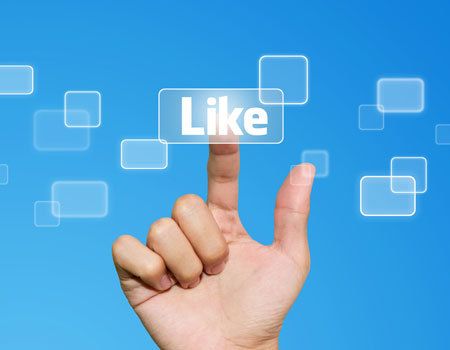Are Computers Better Judges of Personality Than Friends?

When it comes to truly knowing someone's personality, a computer may do a better job than the individual's friends and family members, a new study suggests.
Scientists developed a computer model that mined the Facebook "Likes" of study participants, looking at the products, activities, sports, musicians, books and restaurants to which people gave the "thumbs up." The researchers found that this computer model predicted people's personalities more accurately than did most of the person's friends and family members, with the exception of spouses.
The findings suggest that automated systems could help people make important life decisions, such as choosing career paths or romantic partners, the researchers said. [The Top 10 Golden Rules of Facebook]
"In this context, the human-computer interactions depicted in science fiction films such as 'Her' seem to be within our reach," said Wu Youyou, a psychologist at the University of Cambridge in England and co-author of the study published today (Jan. 12) in the journal Proceedings of the National Academy of Sciences. (In the 2013 movie "Her", a man falls in love with a computer system that speaks with a female voice.)
But the findings also bring up potential privacy concerns, because they show that computers can gain a massive amount of information about individuals, the researchers said.
In the study, Youyou and her colleagues looked at data from 86,000 people who completed a 100-question personality questionnaire; participants also provided the researchers with access to their Facebook "Likes." (The researchers recruited the participants through Facebook, and those who took part were aware they were enrolling in a study. These methods differed from those used in a previous Facebook study, which drew criticism for manipulating users' newsfeeds without their knowledge.)
The personality questionnaires were used to rate people on what psychologists call the "Big Five" traits: openness, conscientiousness, extraversion, agreeableness and neuroticism.
Sign up for the Live Science daily newsletter now
Get the world’s most fascinating discoveries delivered straight to your inbox.
Friends and family members of the volunteers also completed a shorter, 10-question version of the personality questionnaire, giving their assessments of the volunteers. About 17,600 of the volunteers were assessed by one friend or family member, and about 14,400 were evaluated by two.
The results showed that by analyzing just 10 "Likes," the computer model could predict the volunteer's personality more accurately than a work colleague could. Using 70 "Likes," the model was more accurate than a friend or roommate. Using 150 "Likes," the program could beat a family member (a parent or sibling). And with 300 "Likes," the computer could do better than a spouse. The average Facebook user has about 227 Likes, according to the researchers.
The findings can be explained by the advantages that computer programs have over human brains, the researchers said.
"Big Data and machine learning provide accuracy that the human mind has a hard time achieving, as humans tend to give too much weight to one or two examples, or lapse into nonrational ways of thinking," study co-author Michal Kosinski, a computational social scientist at Stanford University, said in a statement.
Although the findings suggest that computer assessments of personality may be useful for aiding people's decisions, the technology also poses a threat to people's privacy, the researchers said.
"We hope that consumers, technology developers, and policy makers will tackle those challenges by supporting privacy-protecting laws and technologies, and giving the users full control over their digital footprints," Kosinski said.
Follow Tanya Lewis on Twitter. Follow us @livescience, Facebook & Google+. Original article on Live Science.













